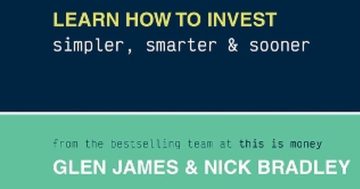James Hall* explains how to get started on the stock market, how to build wealth and the best way to react when the market has a blowout.

Image: Gerd Altmann
Last month, nearly $80 billion was wiped off the Australian share market in two days as weak global growth and international recession fears spooked investors.
But what does that mean for you and what should you do if you have shares or want to have shares?
A lot of people will be panicked by such news into selling off whatever stocks they have or staying away from the market altogether, but the basic principle of trading is to buy low and sell high.
This means huge losses, such as those experienced last week, should be viewed as an opportunity, says Burman Chief Investment Officer, Julia Lee.
She said October 2018 was that year’s worst performing month, losing more than 6 per cent, but this was followed by a bumper four months where the ASX gained more than 20 per cent.
Sure, there is volatility in investing the market, but if you pick the right shares your money can grow over time.
Trading veteran and Director at DNR Capital, Jamie Nicol says investors should take a long-term approach to the market.
“Investing small amounts each month, increasing those amounts when markets are weak and allowing the compounding of dividends and growth will build wealth steadily and impressively over time,” he said.
How do I get started?
There are plenty of platforms that make buying and selling stocks simple to do from home, such as CMC Markets, Bell Direct and CommSec.
Ms Lee said people usually want to make as much money as they can over a short term when beginning on the market, which means they’ll invest in the riskier stocks on the market.
“When you’re starting out, it’s really important to realise it takes a while to get your head around how shares behave and the lessons that you need to learn,” she said.
“It’s better to learn those lessons when you’re taking less risk and as you get more knowledgeable to build risk over time.”
Volatility is your friend
Mr Nicol said younger and more novice traders should capitalise when the market is volatile or soon after a dramatic sell-off.
“Many investors become nervous when markets fall and greedier when markets rise,” he said.
“The reality is you are better off investing more in weaker markets.”
Avoid the rearview mirror
He recommends avoiding buying shares in companies which have already surged in value.
“The past might be a guide, but you are looking for those companies that are going to do well in the future,” Mr Nicol said.
What are ETFs and are they the best option?
An exchange traded fund (ETF) is a collection of securities such as stocks that are lumped together in an underlying index.
ETFs can be a great way for novice investors to accrue money over a long period because it’s diversified.
For instance, instead of investing in BHP, you would invest in the energy sector or instead of committing to Westpac you would buy into the finance sector.
This reduces risk because if a company goes rogue, your investment is generally more secured.
“The benefit of an exchange traded fund is obviously the low cost and the fees do add up over time, so the lower the fees the better you’re giving your investment a chance to flourish,” Ms Lee said.
“It’s a weighted index, which means the larger stocks will hold a bigger portion of your portfolio.”
“So, when the market’s going up it doesn’t really matter, but when the market’s going down you might see an impact.”
What are some decent stocks to get going?
Ms Lee said one of the first rules of investing is to diversify your investments to protect your money from the fluctuations of the market.
“I’d choose a mix of shares that weren’t in the same industry,” she said.
“Having said that, all the shares aren’t going to go up or down at the same time and that’s the benefits of diversification, you should see your risks spread out a little more over these investments.”
Buy good businesses when they are out of favour
Much like sport or everyday life, the hype generated for some companies means the strong and reliable earners on the market can be forgotten, Mr Nicol said.
“The market falls out of love with good businesses from time to time,” he said.
“A good business is one which has a strong likelihood of retaining its profits long into the future.”
“Buying these types of businesses when they are out of favour should add value over the longer term.”
Be patient
Ms Lee says the key to building wealth is to put your money in a place where it has a chance to grow but also make sure you do it on a regular basis.
“There’s a thing call the hot-cold gap and this is the difference between what people intend to do versus what they actually do,” she said.
Ms Lee says this is similar to having discipline with a diet – it’s all well and good to say you’ll have a salad but when you get hungry at lunch, that hamburger and chips smells mighty fine.
“What you plan to do in a cold scenario as opposed to what you do when you’re surrounded by temptation – which is the hot scenario – is usually quite different and that’s because of people’s self-control mechanism,” she said.
“The easiest way to build wealth over time is to take your money out as soon as you get your pay, put it into a separate investment where you can’t see it and do that on a regular basis.”
How to react to the market
A lot of naive investors see news reports of the market falling with hyperboles such as ‘bloodbath’ and ‘wipe-out’ and are spooked into thinking they should react in some way, but Ms Lee says to remember the basic principle: buy low and sell high.
“Which generally means buying shares when everybody else is selling shares or panicking,” she said.
* James Hall is a finance reporter at News.com.au HQ in Sydney. He tweets at @James_P_Hall.
This article first appeared at www.news.com.au











